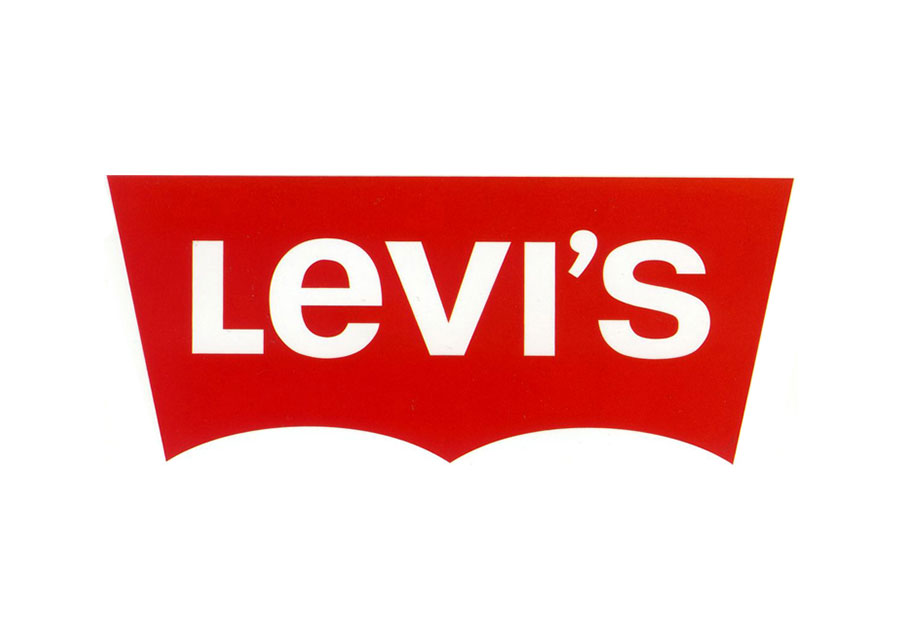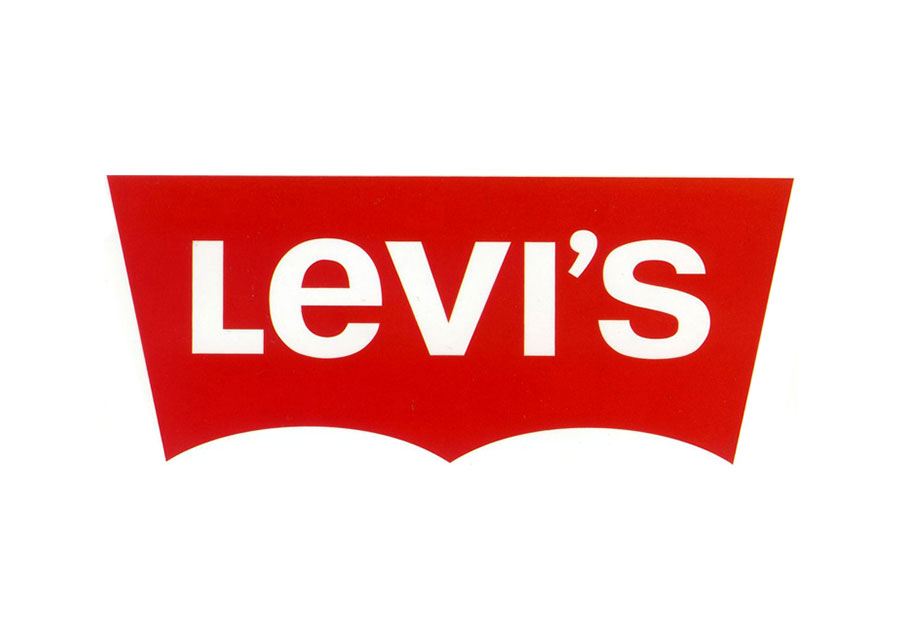Levi Strauss & Co. (NYSE:LEVI) Earnings Preview and Strategic Moves

- Levi Strauss & Co. is set to release its quarterly earnings on July 10, 2025, with an estimated EPS of $0.14 and projected revenue of $1.37 billion.
- The company has sold its Dockers® brand to focus on core strengths, despite facing challenges in the retail landscape.
- Levi offers an annual dividend yield of 2.81%, reflecting its commitment to shareholder value.
Levi Strauss & Co. (NYSE:LEVI) is a renowned name in the apparel industry, known for its iconic denim products. As a major player in the Zacks Retail - Apparel and Shoes industry, Levi has consistently outperformed earnings estimates, showcasing its resilience and strategic prowess. The company is set to release its quarterly earnings on July 10, 2025, with Wall Street analysts estimating an EPS of $0.14 and projected revenue of $1.37 billion.
Despite the anticipated earnings per share of $0.14, analysts expect Levi to report a slightly lower EPS of $0.13, down from $0.16 in the same period last year, as highlighted by Benzinga. This reflects the challenges the company faces in a fluctuating retail landscape. Revenue is also expected to decrease to $1.37 billion from $1.44 billion a year ago, indicating a need for strategic adjustments.
In response to these challenges, Levi Strauss has made significant strategic moves, including the sale of its Dockers® brand to Authentic Brands Group. This decision aligns with the company's efforts to streamline operations and focus on core strengths. Despite these changes, Levi's stock has shown resilience, with shares rising by 1.9% to close at $19.23, as noted by Citigroup analyst Paul Lejuez.
For investors, Levi Strauss offers an annual dividend yield of 2.81%, translating to a quarterly dividend of $0.13 per share. To earn $500 monthly from dividends, an investor would need to own approximately 11,538 shares, requiring an investment of around $225,568. This dividend yield reflects the company's commitment to returning value to shareholders despite market challenges.
Levi Strauss's financial metrics provide insight into its market position. With a P/E ratio of 21.73, investors are willing to pay $21.73 for each dollar of earnings. The company's price-to-sales ratio of 1.22 and enterprise value to sales ratio of 1.47 indicate a solid valuation relative to sales. Additionally, a debt-to-equity ratio of 1.06 and a current ratio of 1.50 suggest a balanced approach to debt and liquidity management.
| Symbol | Price | %chg |
|---|---|---|
| POLU.JK | 24800 | 0 |
| ARGO.JK | 1090 | 0 |
| SRIL.JK | 146 | 0 |
| 111770.KS | 58600 | 0 |

Levi Strauss & Co. (NYSE:LEVI) Stock Analysis: A Closer Look at the Iconic Denim Brand's Financial Outlook
- The consensus target price for Levi Strauss & Co. (NYSE:LEVI) has increased to $26.67 from $25.40 over the past year, indicating a positive sentiment among analysts.
- Analysts predict a slight decline in earnings and sales for the upcoming third-quarter earnings report, with adjusted earnings of 31 cents per share and revenue of $1.5 billion.
- The apparel industry's performance, including Levi Strauss & Co., is closely tied to consumer preferences and economic conditions, affecting stock performance and target prices.
Levi Strauss & Co. (NYSE:LEVI) is a renowned apparel company, famous for its iconic denim products. It operates globally, offering a diverse range of clothing and accessories under brands like Levi's, Dockers, and Denizen. The company reaches consumers through various channels, including third-party retailers, e-commerce, and its own stores, ensuring a strong retail presence worldwide.
The current consensus target price for Levi's stock has shown a gradual increase over time. Last month's average target price was $26.67, up from $26.25 in the previous quarter. This slight rise indicates a modest positive sentiment among analysts, as highlighted by the recent adjustments in forecasts by Wall Street analysts, including Jim Duffy from Stifel Nicolaus, who set a price target of $26.
Over the past year, the average target price has risen from $25.40 to $26.67. This increase reflects growing confidence in Levi Strauss & Co.'s performance and potential growth. Analysts have become more optimistic about the company's prospects, as evidenced by the upcoming third-quarter earnings report, which is expected to provide insights into the company's financial health.
Levi Strauss & Co. is set to announce its third-quarter earnings results on October 9, 2025. Analysts predict adjusted earnings of 31 cents per share and revenue of $1.5 billion. This forecast suggests a 6% decline in earnings compared to the previous year, where earnings were 33 cents per share, and a 1% decrease in sales from last year's $1.52 billion.
Investors and analysts will closely watch the upcoming earnings report, as it could significantly influence target prices and investor sentiment. The apparel industry is subject to changing consumer preferences and economic conditions, and Levi Strauss & Co.'s ability to adapt to these trends can impact its stock performance and target prices.

Levi Strauss & Co. (NYSE: LEVI) Quarterly Earnings Overview
- Levi Strauss & Co. is expected to report an earnings per share (EPS) of $0.31, a 6.1% decline year-over-year.
- Projected revenue for the quarter is approximately $1.5 billion, a slight decrease of 1.1% from the previous year.
- The company's financial health indicators include a price-to-earnings (P/E) ratio of 23.77 and a debt-to-equity ratio of 1.07.
Levi Strauss & Co. (NYSE: LEVI) is a globally recognized American clothing company, best known for its iconic denim jeans. The company operates worldwide, selling its products through a combination of wholesale, retail, and e-commerce channels. As a significant player in the apparel industry, Levi competes with brands like Wrangler and Lee, which are part of Kontoor Brands, as well as other fashion retailers.
Levi is set to release its quarterly earnings on October 9, 2025. Analysts expect the company to report earnings per share (EPS) of $0.31, which represents a 6.1% decline from the same period last year. This decline in EPS suggests that the company may be facing challenges in maintaining its profitability compared to the previous year.
The company's revenue is projected to be approximately $1.5 billion, marking a 1.1% decrease from the previous year's quarter. Despite this slight decline, the consensus EPS estimate has remained stable over the past 30 days. This stability indicates that analysts have not revised their initial predictions, suggesting a level of confidence in their forecasts.
Levi's financial metrics provide further insight into its market valuation. The company has a price-to-earnings (P/E) ratio of 23.77, reflecting how the market values its earnings. Additionally, the price-to-sales ratio is 1.52, and the enterprise value to sales ratio is 1.77, indicating how the market values the company's revenue and sales, including debt.
The company's financial health is also highlighted by its debt-to-equity ratio of 1.07, showing a moderate level of leverage. Levi's current ratio of 1.48 suggests it has a good ability to cover short-term liabilities with short-term assets. These metrics, along with an earnings yield of 4.21%, provide a comprehensive view of Levi's financial standing as it prepares to announce its quarterly results.

Levi’s Rallies 11% on Earnings Beat and Upgraded Outlook
Levi Strauss & Co. (NYSE:LEVI) surged over 11% on Friday after delivering second-quarter results that beat expectations and lifting its full-year profit guidance, signaling sustained consumer demand for its denim products.
The company reported earnings per share of $0.22 for the quarter, comfortably surpassing Wall Street’s $0.13 estimate. Revenue also came in strong at $1.4 billion, exceeding the $1.37 billion analysts had forecast.
Building on the momentum, Levi raised its full-year 2025 earnings guidance to a range of $1.25 to $1.30 per share—above the current consensus of $1.23. The upbeat revision reflects confidence in continued brand strength and steady demand across key markets.
The solid quarter and improved outlook suggest Levi is regaining its stride, even amid a challenging retail environment, as strategic execution and strong product performance continue to support growth.

Levi Strauss & Co. (NYSE:LEVI): A Deep Dive into Its Financial Health and Growth Prospects
- Levi Strauss & Co. (NYSE:LEVI) has experienced a slight stock decline of approximately 1.63% over the past 30 days, indicating potential entry points for investors.
- The company boasts a strong growth potential with a projected stock price increase of 26.07%, making it an attractive option for long-term investors.
- LEVI's financial health is solid, with a Piotroski Score of 8, suggesting efficient operations and strong fundamentals.
Levi Strauss & Co. (NYSE:LEVI) is a globally recognized apparel company known for its iconic denim jeans. Founded in 1853, the company has a rich history and a strong brand presence worldwide. Levi's operates in the apparel industry, competing with other major brands like Wrangler and Lee. The company is known for its innovation in denim and commitment to sustainability.
Over the past 30 days, LEVI's stock has seen a slight decline of approximately 1.63%. This downturn has been more pronounced in the last 10 days, reflecting the monthly loss. Such fluctuations are not uncommon in the stock market and can present strategic entry points for investors looking to capitalize on potential rebounds.
LEVI's growth potential is notable, with a projected stock price increase of 26.07%. This suggests that the stock could recover strongly from its current position. Investors often look for stocks with significant upside potential, and LEVI's growth prospects make it an attractive option for those seeking long-term gains.
The company's financial health is underscored by a Piotroski Score of 8. This score indicates strong fundamentals and efficient operations, which are crucial for sustained growth. A high Piotroski Score is often seen as a positive indicator for investors, as it reflects a company's ability to manage its finances effectively.
Analysts have set a target price of $22 for LEVI, aligning with its growth potential. This target price suggests a promising return on investment for those who take advantage of the current price dip. Additionally, LEVI has recently touched a local minimum, which often signals a potential reversal in trend, making it an opportune moment for investors to consider adding LEVI to their portfolios.

Levi Strauss & Co. (NYSE:LEVI) Stock Analysis: A Deep Dive into Financial Health and Growth Prospects
- Levi Strauss & Co. (NYSE:LEVI) has seen a significant increase of approximately 6.51% over the past month, indicating strong investor confidence.
- The company's stock price growth potential is pegged at 26.80%, highlighting its room for further appreciation and attractiveness to growth-oriented investors.
- LEVI's robust financial health is underscored by its Piotroski Score of 8, reflecting strong fundamentals including profitability, liquidity, and operational efficiency.
Levi Strauss & Co. (NYSE:LEVI) is a globally recognized apparel company, best known for its iconic denim jeans. Founded in 1853, the company has a rich history and a strong brand presence worldwide. Levi's operates in the highly competitive fashion industry, facing competition from brands like Wrangler, Lee, and Diesel. Despite the competition, Levi's has maintained its market position through innovation and brand loyalty.
Over the past month, LEVI has seen a significant increase of approximately 6.51%, reflecting strong investor confidence and positive market sentiment. This upward trend is noteworthy, especially in a competitive industry. However, in the last 10 days, the stock experienced a slight decline of about 1.81%. This short-term dip might offer a strategic entry point for investors aiming to benefit from potential rebounds.
LEVI's growth potential is underscored by its stock price growth potential of 26.80%. This indicates that the stock has room to appreciate further, making it an attractive option for growth-oriented investors. The company's ability to innovate and adapt to market trends contributes to this optimistic outlook, positioning it well for future growth.
Financially, LEVI is robust, as evidenced by its Piotroski Score of 8. This score highlights the company's strong fundamentals, including profitability, liquidity, and operational efficiency. A high Piotroski Score is a positive indicator of financial health, suggesting that LEVI is well-managed and financially stable.
Analysts have set a target price of $22 for LEVI, indicating potential upside from its current levels. This target reflects confidence in the company's ability to deliver value to shareholders. Additionally, LEVI has recently touched a local minimum, suggesting a potential rebound. This technical indicator, combined with its strong fundamentals, makes LEVI an intriguing prospect for investors.

Levi Strauss & Co. (NYSE: LEVI) Surpasses Earnings Expectations
- Levi Strauss & Co. (NYSE: LEVI) reported an EPS of $0.38, beating the estimated $0.28.
- The company generated revenue of approximately $1.53 billion, slightly below the forecast but showed growth driven by the U.S. market.
- Levi Strauss maintains a positive financial outlook, with a P/E ratio of approximately 25.44 and a price-to-sales ratio of about 0.84.
Levi Strauss & Co. (NYSE: LEVI) is a renowned name in the apparel industry, known for its iconic denim products. The company operates globally, with a strong presence in the U.S. market. Levi Strauss competes with other major apparel brands like Gap Inc. and VF Corporation. On April 7, 2025, Levi Strauss reported earnings per share (EPS) of $0.38, surpassing the estimated $0.28, showcasing its strong financial performance.
The company generated revenue of approximately $1.53 billion, slightly below the estimated $1.54 billion. Despite this, Levi Strauss reported an increase in revenue for the fiscal first quarter, driven primarily by strong performance in the U.S. market. This growth is attributed to consistent demand for its denim products, even amid a challenging economic environment.
Levi Strauss has maintained its financial outlook for the year, demonstrating confidence in its ability to navigate challenges. The company's resilience is attributed to a diverse supply chain, which has helped mitigate the impact of trade tensions affecting the footwear and apparel sectors. However, it is important to note that Levi Strauss's guidance does not account for the potential impact of higher tariffs.
The company's ongoing transformation strategy is proving effective, as highlighted by its robust start to the year. Levi Strauss's financial results exclude approximately $67 million of net revenues related to Dockers®. Michelle Gass, President and CEO, expressed confidence in the company's strategy, highlighting the positive outcomes achieved in the first quarter.
Levi Strauss's financial metrics provide insight into its market position. The company has a price-to-earnings (P/E) ratio of approximately 25.44, indicating the price investors are willing to pay for each dollar of earnings. The price-to-sales ratio stands at about 0.84, suggesting that investors are paying $0.84 for every dollar of sales. The enterprise value to sales ratio is around 1.08, reflecting the company's total valuation compared to its sales.







